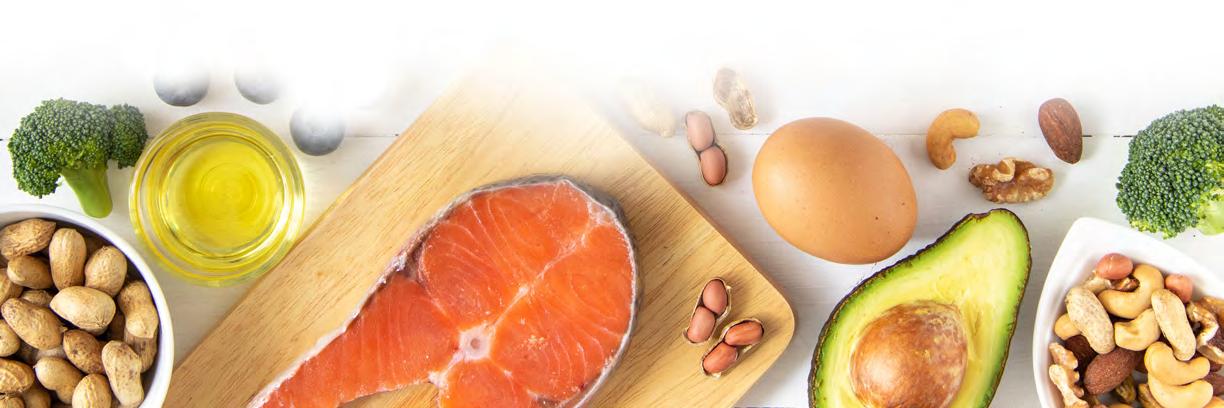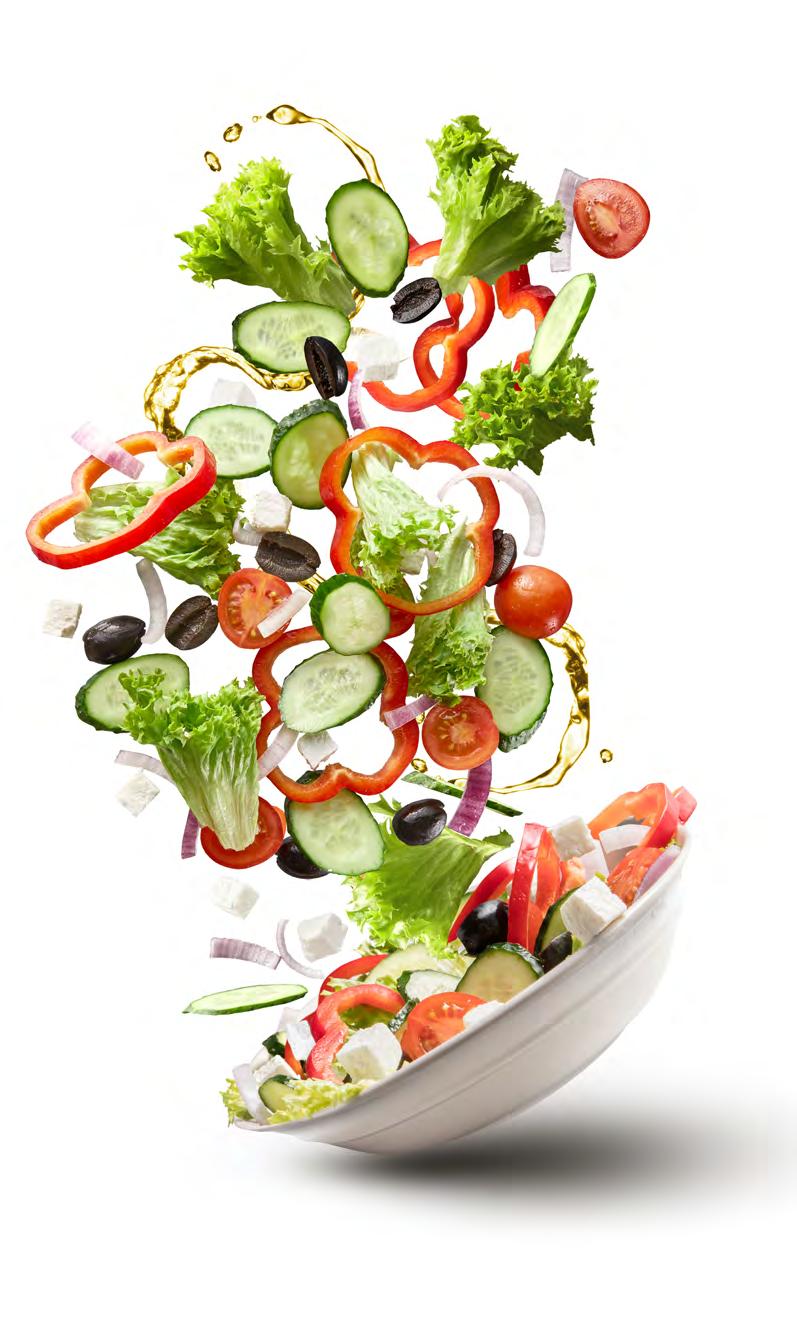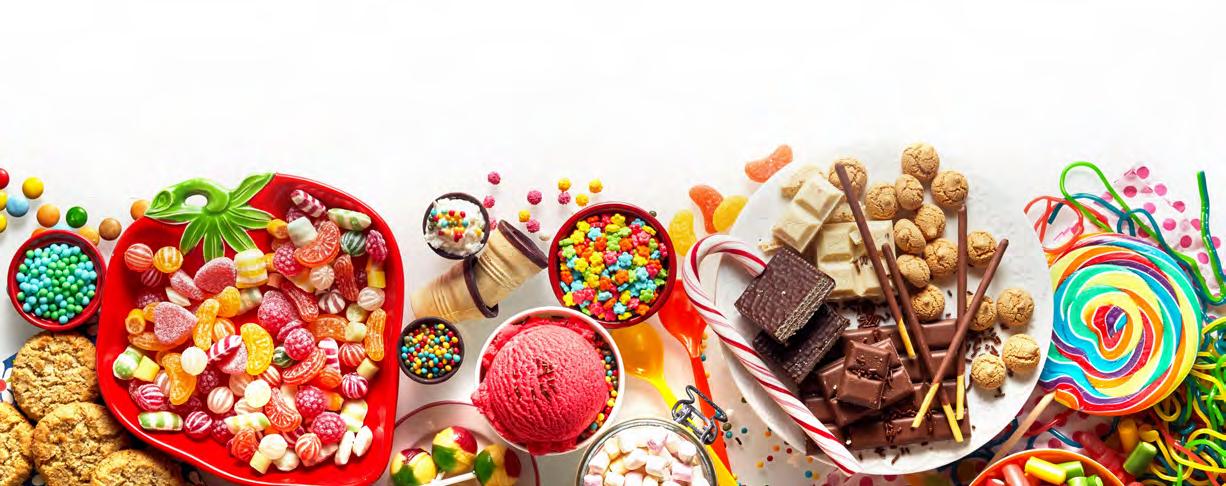
4 minute read
Best and Worst Foods for your Mental Health and Wellness
COVID-19 HAS BROUGHT ISSUES SURROUNDING MENTAL HEALTH AND WELL-BEING TO THE FOREFRONT OF PUBLIC DISCOURSE.
Regardless of where you may currently find yourself on the mental health and wellness spectrum, diet plays an important role in mental well-being. A healthy and well-balanced diet can do wonders in improving mental health along with key activities such as proper sleep and exercise. Let’s take a look at some of the best foods for better mental health and wellness – plus a few not-so-healthy choices to scrap from your diet.
Colourful fruits and vegetables
Many fruits and vegetables contain what’s known as ‘complex carbohydrates’, which are great for brain health. By releasing energy into our bodies slowly, complex carbohydrates found in fruit and vegetables can improve our mood over time. Many coloured fruits and vegetables also contain antioxidants and vitamins which help us deal with stress. So if you’re feeling a bit overwhelmed or are going through a rough time, upping your fruit and vegetable intake could help you feel better.
Think leafy greens like kale and spinach, carrots, sweet potatoes, pineapples, pawpaw and bananas. Fruit and vegetables are great for healthy snacks, or in salads, soups, stews and sandwiches.
Wholegrains
Wholegrains are high in fibre and really good for you! These include things like corn, brown rice, quinoa, oats, rye and barley.
Wholegrains contain a type of amino acid that makes your body produce ‘serotonin’ – also known as the “happy chemical”! Serotonin helps calm the mind, improve your mood, and keep your sleep cycle on track – all of which help maintain a good headspace.
If you’re feeling down or low on energy, eating some brown rice, corn, or quinoa can help release more of the happy chemical into your body. You could even start your day off with a healthy bowl of oats for a wholegrain booster.
Fermented foods
Fermented foods like unsweetened yoghurts, pickled foods and drinks like kombucha and sauerkraut are thought to affect the same parts of your brain as some anti-depressants do. Eating more of them can help with feelings related to anxiety and depression.
The good bacteria in fermented foods directly influences our mood and emotions. Heaps of research links gut health to mental health, and the probiotics and prebiotics in fermented foods actively affect the environment of our tummies. Just be sure to avoid fermented foods with lots of added sugar.
Fish
Oily fish like salmon and prawns contain a special fatty acid known as DHA which is an awesome ‘brain food’! It helps with memory, and can boost your mood and reduce anxiety.

Fish also contains omega 3 acids which are great for brain function, and help circulate serotonin and dopamine – feelgood chemicals – around your body. By fitting more fish into your diet, you will be helping to improve feelings of depression while boosting your memory ability.
Tinned fish can be cheaper and easier to buy, and can still have the same great effect on your mental health.
Water
One final important nutrient for your brain is water. It makes up the majority of your brain mass. Even mild dehydration can lead to mental health symptoms, such as irritability and loss of concentration.
Foods to Avoid
IF INCREASING YOUR INTAKE OF THE ABOVE HELPS TO BOOST OUR MENTAL HEALTH, THERE ARE CERTAIN TYPES OF FOODS THAT BASICALLY DO THE OPPOSITE.
You may choose to avoid having too much of these if you’re going through a challenging time. These include:
Sugar
This is highly addictive and does the opposite to what complex carbohydrates do for us. Not only can it inflict long-lasting damage to your body if you overindulge regularly, but a so-called "sugar rush" can send your brain on an emotional journey and seriously affect your well-being. In a nutshell, sugar will only serve to inflame your depression and anxiety, so avoid it at all costs. Cutting back on sugary foods and drinks can be a great step towards feeling better
Alcohol
Drinking lots of alcohol can have a negative effect on mental health. Alcohol can interrupt sleep patterns, and affect your ability to focus. Cutting back may help you feel better in the long run.
Refined white starches
Refined white starches (eg. white rice, crackers and white bread) can wreak havoc on your emotional state. They can spike blood sugar levels and affect your mood in a big way, even if you previously didn't have a history of mental health issues. Studies have shown that it's best to avoid them for the betterment of your emotional state.
Saturated fats
These are the oily, fried and fatty foods you expect from takeaway and fast foods as well as from processed meats and meals. These bad fats can decrease brain function and make it harder to focus and remember things.
Caffeine
Although a low dose of caffeine can result in an improvement of overall mood (e.g. green tea), high intakes throughout the day can result in frayed nerves, heightened feelings of anger and anxiety and a serious case of the jitters. The good news: no one is telling you to quit coffee – but limiting yourself to one cup a day will work wonders on your emotional state.
IF YOU’RE FEELING A BIT OFF, TAKE A CLOSER LOOK AT WHAT KIND OF FOODS YOU’RE EATING. BY MAKING A FEW POSITIVE CHANGES, YOU CAN IMPROVE HOW YOU FEEL MENTALLY, EMOTIONALLY AND PHYSICALLY.











